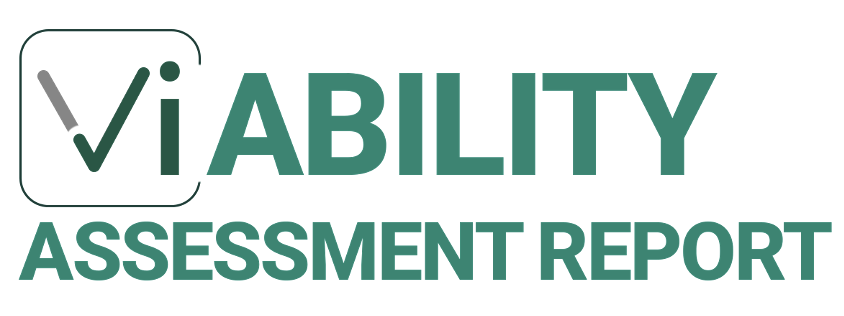Data Depth with Simplicity: Why VAR Insights Can Be Trusted
In rural entrepreneurship, trust in information is everything. Many business ideas stumble not because of effort or intent, but because they were built on weak or incomplete data. Too often, rural entrepreneurs rely on hearsay, anecdotal advice, or outdated statistics to decide whether to pursue a business. The result? Uncertainty, miscalculated investments, and missed opportunities.

Shunya Agritech’s Viability Assessment Report (VAR) is designed to end this guesswork. At its core, VAR integrates multiple verified and diverse data sources including government census records, livestock ownership data, demographic profiles, and fodder deficit assessments to paint a clear picture of the local market reality. What makes VAR truly powerful, however, is how it simplifies this complexity into a quick, easy-to-read snapshot for the entrepreneur.
Depth of Data, Delivered Simply
- Multi-Layered Sources: VAR combines inputs from government census data, livestock surveys, rural population density datasets, and fodder demand–supply calculations. Instead of depending on a single report, it layers multiple verified sources for robustness.
- Key Parameters Translated into Insights: The report filters this complex data into the parameters that matter most for a business decision: number of villages in a 2/10/20 km radius, livestock count, local fodder demand, existing shortages, and the resulting viability rating.
- Reliable Yet Accessible: While the backend integrates diverse datasets, the entrepreneur only sees a concise, actionable output — Excellent, High, Viable, or Not Viable. The heavy lifting is invisible, but the impact is immediate.
Why This Matters for Rural Entrepreneurs
- Trust in Decision-Making: When an entrepreneur invests lakhs into a business, they need confidence that the numbers are rooted in facts, not assumptions. By using government and verified data sources, VAR ensures credibility.
- Clarity Without Complexity: Entrepreneurs don’t have to decode lengthy reports. They get a distilled version that answers the only question that matters: Is this business in my area viable?
- Conservative and Realistic: Importantly, VAR’s viability recommendation assumes that in the initial years, only a small percentage of the total demand will actually be served by the entrepreneur. This conservative approach ensures the business remains viable even at modest levels of uptake — giving entrepreneurs more confidence and less risk.
USPs vs. Traditional Methods
- Local Surveys: Often small in scale, prone to bias, and costly.
- Generic Reports: Broad in scope (district/state level), not tailored to a micro-catchment.
- VAR: Combines diverse, verified sources → simplifies into local, actionable insights instantly and free of cost, with a conservative demand assumption baked in.
Built for Bharat Realities: Bharat’s rural economy is vast, complex, and varied. In one taluka, fodder might be abundant, while in the next, shortages run deep. A one-size-fits-all report doesn’t work here. VAR’s integration of diverse datasets captures this nuance and tailors it to the local reality of each entrepreneur.
And by recommending viability on the basis of catering to just a fraction of existing demand initially, VAR ensures that even small-scale entrepreneurs can confidently start operations, knowing they won’t need to capture the entire market to succeed.
Confidence You Can Build On: At its heart, VAR is not just about data; it’s about confidence. By combining multiple verified sources into a clear, actionable insight — and setting conservative assumptions — it ensures entrepreneurs take their first step knowing the ground beneath them is solid.

